A Crisis Worse Than Islamic State? Bank ‘Bail-Ins’ Begin
While the mainstream media focus on Islamic State extremists, a threat that has gone virtually unreported is that your life savings could be wiped out in a massive derivatives collapse. Bank bail-ins have begun in Europe, and the infrastructure is in place in the United States.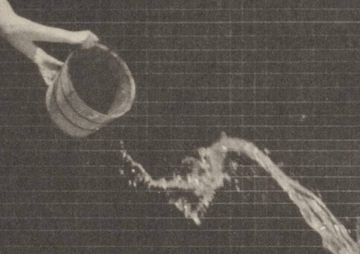 Ashley Van Haeften / CC BY 2.0
1
2
Ashley Van Haeften / CC BY 2.0
1
2
At the end of November, an Italian pensioner hanged himself after his entire €100,000 savings were confiscated in a bank “rescue” scheme. He left a suicide note blaming the bank, where he had been a customer for 50 years and had invested in bank-issued bonds. But he might better have blamed the EU and the G20’s Financial Stability Board, which have imposed an “Orderly Resolution” regime that keeps insolvent banks afloat by confiscating the savings of investors and depositors. Some 130,000 shareholders and junior bond holders suffered losses in the “rescue.”
The pensioner’s bank was one of four small regional banks that had been put under special administration over the past two years. The €3.6 billion ($3.83 billion) rescue plan launched by the Italian government uses a newly-formed National Resolution Fund, which is fed by the country’s healthy banks. But before the fund can be tapped, losses must be imposed on investors; and in January, EU rules will require that they also be imposed on depositors. According to a December 10th article on BBC.com:
The rescue was a “bail-in” – meaning bondholders suffered losses – unlike the hugely unpopular bank bailouts during the 2008 financial crisis, which cost ordinary EU taxpayers tens of billions of euros.
Correspondents say [Italian Prime Minister] Renzi acted quickly because in January, the EU is tightening the rules on bank rescues – they will force losses on depositors holding more than €100,000, as well as bank shareholders and bondholders.
. . . [L]etting the four banks fail under those new EU rules next year would have meant “sacrificing the money of one million savers and the jobs of nearly 6,000 people”.
That is what is predicted for 2016: massive sacrifice of savings and jobs to prop up a “systemically risky” global banking scheme.
Bail-in Under Dodd-Frank
That is all happening in the EU. Is there reason for concern in the US?
According to former hedge fund manager Shah Gilani, writing for Money Morning, there is. In a November 30th article titled “Why I’m Closing My Bank Accounts While I Still Can,” he writes:
[It is] entirely possible in the next banking crisis that depositors in giant too-big-to-fail failing banks could have their money confiscated and turned into equity shares. . . .
If your too-big-to-fail (TBTF) bank is failing because they can’t pay off derivative bets they made, and the government refuses to bail them out, under a mandate titled “Adequacy of Loss-Absorbing Capacity of Global Systemically Important Banks in Resolution,” approved on Nov. 16, 2014, by the G20’s Financial Stability Board, they can take your deposited money and turn it into shares of equity capital to try and keep your TBTF bank from failing.
Once your money is deposited in the bank, it legally becomes the property of the bank. Gilani explains:
Your deposited cash is an unsecured debt obligation of your bank. It owes you that money back.
If you bank with one of the country’s biggest banks, who collectively have trillions of dollars of derivatives they hold “off balance sheet” (meaning those debts aren’t recorded on banks’ GAAP balance sheets), those debt bets have a superior legal standing to your deposits and get paid back before you get any of your cash.
. . . Big banks got that language inserted into the 2010 Dodd-Frank law meant to rein in dangerous bank behavior.
The banks inserted the language and the legislators signed it, without necessarily understanding it or even reading it. At over 2,300 pages and still growing, the Dodd Frank Act is currently the longest and most complicated bill ever passed by the US legislature.
Propping Up the Derivatives Scheme
Dodd-Frank states in its preamble that it will “protect the American taxpayer by ending bailouts.” But it does this under Title II by imposing the losses of insolvent financial companies on their common and preferred stockholders, debtholders, and other unsecured creditors. That includes depositors, the largest class of unsecured creditor of any bank.
Title II is aimed at “ensuring that payout to claimants is at least as much as the claimants would have received under bankruptcy liquidation.” But here’s the catch: under both the Dodd Frank Act and the 2005 Bankruptcy Act, derivative claims have super-priority over all other claims, secured and unsecured, insured and uninsured.
The over-the-counter (OTC) derivative market (the largest market for derivatives) is made up of banks and other highly sophisticated players such as hedge funds. OTC derivatives are the bets of these financial players against each other. Derivative claims are considered “secured” because collateral is posted by the parties.
For some inexplicable reason, the hard-earned money you deposit in the bank is not considered “security” or “collateral.” It is just a loan to the bank, and you must stand in line along with the other creditors in hopes of getting it back. State and local governments must also stand in line, although their deposits are considered “secured,” since they remain junior to the derivative claims with “super-priority.”
Your support matters…Independent journalism is under threat and overshadowed by heavily funded mainstream media.
You can help level the playing field. Become a member.
Your tax-deductible contribution keeps us digging beneath the headlines to give you thought-provoking, investigative reporting and analysis that unearths what's really happening- without compromise.
Give today to support our courageous, independent journalists.

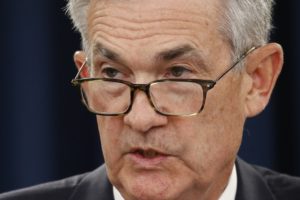

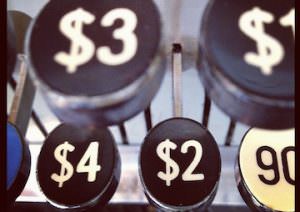

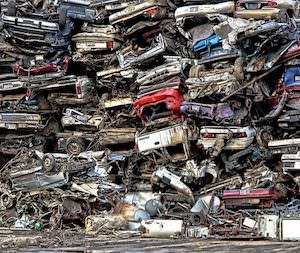
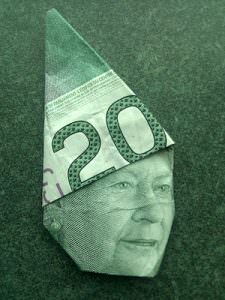
You need to be a supporter to comment.
There are currently no responses to this article.
Be the first to respond.